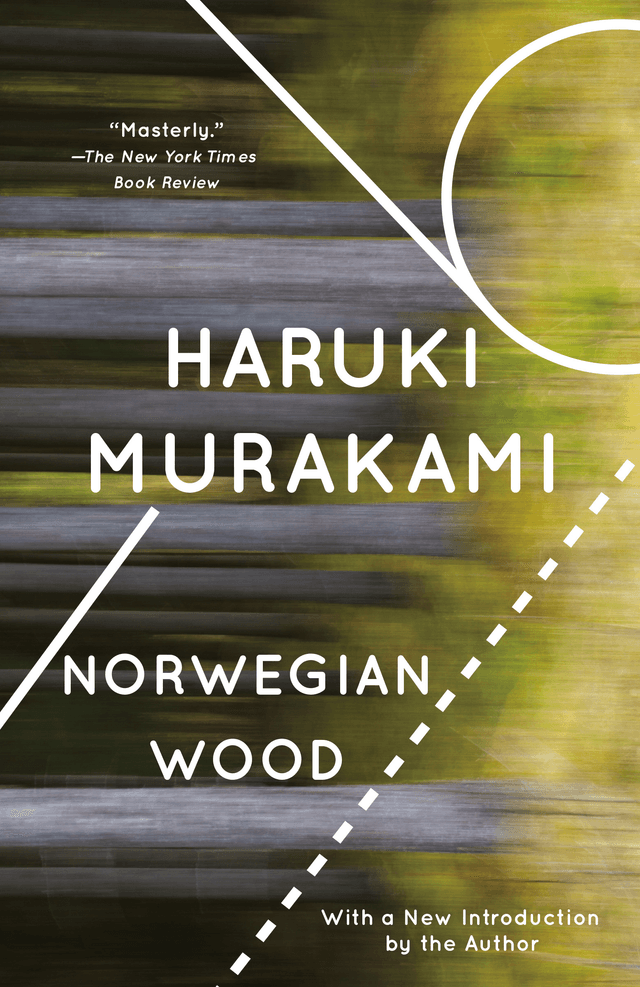The Wind-Up Bird Chronicle vs. Norwegian Wood
The Wind-Up Bird Chronicle
In a Tokyo suburb, a young man named Toru Okada searches for his wife’s missing cat—and then for his wife as well—in a netherworld beneath the city’s placid surface. As these searches intersect, he encounters a bizarre group of allies and antagonists. Gripping, prophetic, and suffused with comedy and menace, this is one of Haruki Murakami’s most acclaimed and beloved novels.
Norwegian Wood
Toru, a serious young college student in Tokyo, is devoted to Naoko, a beautiful and introspective young woman, but their mutual passion is marked by the tragic death of their best friend years before. As Naoko retreats further into her own world, Toru finds himself drawn to a fiercely independent and sexually liberated young woman. Stunning and elegiac, Norwegian Wood first propelled Haruki Murakami into the forefront of the literary scene.
| Item | Votes | Upvote |
|---|---|---|
| Murakami at his best | 1 | |
| Long, captivating read | 1 |
| Item | Votes | Upvote |
|---|---|---|
| They cut out some chapters in the English translation | 1 |
| Item | Votes | Upvote |
|---|---|---|
| No pros yet, would you like to add one? | ||
| Item | Votes | Upvote |
|---|---|---|
| No cons yet, would you like to add one? | ||
Frequently Asked Questions
'The Wind-Up Bird Chronicle' and 'Norwegian Wood' both showcase Haruki Murakami's unique storytelling, but they cater to different reader preferences. 'The Wind-Up Bird Chronicle' is known for its long, captivating narrative and complex plot, which some readers consider Murakami at his best. However, the English translation does omit some chapters. On the other hand, 'Norwegian Wood' propelled Murakami into the literary spotlight with its stunning, elegiac story focused on relationships and personal introspection. Your preference may depend on whether you enjoy intricate, sprawling narratives or more intimate, character-driven stories.
'The Wind-Up Bird Chronicle' is often regarded as one of Haruki Murakami’s most acclaimed novels, praised for its gripping and prophetic storytelling. Meanwhile, 'Norwegian Wood' is celebrated for bringing Murakami into the forefront of the literary scene with its poignant and elegiac narrative. Both books have received significant critical acclaim, but 'The Wind-Up Bird Chronicle' is frequently highlighted for its complexity and depth.
'The Wind-Up Bird Chronicle' is a longer and more complex novel compared to 'Norwegian Wood'. It offers a more extensive and detailed narrative, making it a captivating read for those who enjoy delving deep into a story. In contrast, 'Norwegian Wood' is more concise and focused on character development and personal relationships.
'The Wind-Up Bird Chronicle' by Haruki Murakami is about a young man named Toru Okada who searches for his wife’s missing cat—and then for his wife as well—in a netherworld beneath the city’s placid surface. As these searches intersect, he encounters a bizarre group of allies and antagonists. The novel is gripping, prophetic, and suffused with comedy and menace.
Pros of 'The Wind-Up Bird Chronicle' include that it showcases Murakami at his best and is a long, captivating read. However, a con is that some chapters were cut out in the English translation.
'Norwegian Wood' is a novel by Haruki Murakami that follows the story of Toru, a serious college student in Tokyo. The plot revolves around Toru's devotion to Naoko, a beautiful and introspective young woman. Their relationship is deeply affected by the tragic death of their best friend years before. As Naoko withdraws further into her own world, Toru becomes attracted to another woman who is fiercely independent and sexually liberated. The novel is known for its elegiac and stunning prose, and it played a significant role in propelling Murakami into the literary spotlight.
Haruki Murakami is a renowned Japanese author known for his unique blend of fantasy, realism, and surrealism. His works often explore themes of loneliness, existentialism, and the human psyche. Some of his most famous books include 'Norwegian Wood', 'Kafka on the Shore', and '1Q84'. Murakami's writing has garnered a global audience and has been translated into numerous languages.
'Norwegian Wood' delves into themes such as love, loss, and mental health. The novel explores the complexities of human relationships and the impact of past traumas on the present. It also touches on the struggles of dealing with grief and finding one's own identity amidst emotional turmoil.
'Norwegian Wood' is significant in Haruki Murakami's career as it was the book that brought him widespread recognition and propelled him into the forefront of the literary scene. The novel's emotive and introspective narrative resonated with a large audience, establishing Murakami as a leading voice in contemporary literature.
'Norwegian Wood' contains mature themes, including mental illness, suicide, and sexual content. While it is a beautifully written novel, it may not be suitable for all readers, particularly younger audiences or those sensitive to such topics. Readers should consider these elements before deciding to read the book.













